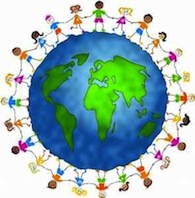 If you are taking the time to read this post, it is almost a certainty that you are a person who wishes to better himself or herself and the world as well. Most of us care about each other and want the world to be a better place for everyone.
If you are taking the time to read this post, it is almost a certainty that you are a person who wishes to better himself or herself and the world as well. Most of us care about each other and want the world to be a better place for everyone.
One of the most important duties of a society is to allocate resources to do the most good, create the most real value, lead to the greatest benefit.
You want to save lives?
400,000 Americans die each year from tobacco
250,000 Americans die each year from obesity
180,000 Americans die each year from mistakes in hospitals
15,000 Americans die each year from alcohol- or drug-related auto accidents
We incarcerate twice as many of our citizens as Europe or Japan or Australia, yet our crime rate is twice as high. This is incredibly expensive.
– Could it be our prisons are schools for crime?
– One out of 9 young Black American males has served prison time, usually for low-level drugs. Try to get a job with a felony record.
– Could it be the “War on Drugs” is a failed approach? Perhaps drugs are less a crime issue, more a health issue?
– How much more money would we have to spend on schools and hospitals if we stopped arresting and imprisoning pot users?
– We applaud legislators for being “tough on crime,” but perhaps that simplistic rhetoric fails to address the true complex reality?
Want less crime?
– Open free family-planning clinics in every economically-deprived neighborhood.
– Promote the idea that every child deserves to be a wanted child with parents emotionally and financially ready.
– Educate kids about the incredibly high level of commitment being a parent requires. Programs exist where kids care for a digital baby that cries and records responses.
The problems we face are multifaceted and difficult. If it were easy, it already would have been done. Solving challenging problems often requires a new level of thinking, a deep understanding of complexities, and a willingness to persist, to take a longer view than just the next election cycle. Our hearts can provide the commitment but we need our brains to prioritize and create the solutions.
Closing quotes:
“Often the quickest way out of a complex problem is the quickest way back in.” — Principle from Systems Theory
“To him who has a hammer, everything is a nail.” (Tendency to limit solutions to those related to viewers’ expertise, experience, or available resources)
“What we need here is a bigger hammer. (Tendency to persist on a path once it is chosen, in part because any other choice would be to admit a mistake)

